Three days after an assassination attempt on Donald Trump that has made him look stronger than ever, former U.K. Prime Minister Boris Johnson had one main message upon getting precious face time with the Republican candidate seeking a second term as U.S. president.
Johnson took to X to publicly express to the man, who looks likely to lead the world’s most powerful country again, how crucial supporting Ukraine is.
"Great to meet President Trump who is on top form after the shameful attempt on his life," Johnson said in a post on the social media platform after the July 16 meeting, adding: "We discussed Ukraine and I have no doubt that he will be strong and decisive in supporting that country and defending democracy."
The post, made on the sidelines of the Republican National Convention in Milwaukee, Wisconsin, included a photograph of both men smiling with thumbs-up gestures. Trump’s ear was still bandaged from a bullet that grazed his head.
It is unclear if Ukrainian President Volodymyr Zelensky asked Johnson, an outspoken supporter of further Western assistance to Ukraine who has made numerous visits to Kyiv during and after his premiership, to reach out to Trump.
Great to meet President Trump who is on top form after the shameful attempt on his life. We discussed Ukraine and I have no doubt that he will be strong and decisive in supporting that country and defending democracy. pic.twitter.com/OEVZPZsRE1
— Boris Johnson (@BorisJohnson) July 16, 2024
But the moment is one of the latest efforts by supporters of Ukraine, some acting on Kyiv's requests and others independently, to nudge Trump towards a more pro-Ukrainian stance as his potential victory in the election appears increasingly likely.
At stake for Ukraine more than two years into Russia’s full-scale invasion is preserving military assistance from its top Western ally.
Many in Trump’s MAGA camp and circle of formal and informal advisors have opposed or questioned further assistance to Ukraine, including J.D. Vance, whom Trump this week chose as his vice presidential running mate.
But there are others in Trump's circle of supporters and former subordinates who are vocal about the importance of helping Ukraine defeat Russia, and appear to be using their influence to get through to the potential next U.S. president.
Republican Senator Lindsey Graham visited Kyiv in March and criticized the slow delivery of U.S.-made ATACMS long-range missiles. He said Ukraine would soon “get ATACMS so (it) can knock the damn bridge down linking Crimea to Russia.”
Mike Pompeo, who served as secretary of state and CIA director during Trump's first term in office, during a visit to Kyiv in April 2023 called for more U.S. support for Ukraine's war effort. He said he would work toward Washington supplying F-16 fighter jets and long-range missiles to Ukraine.
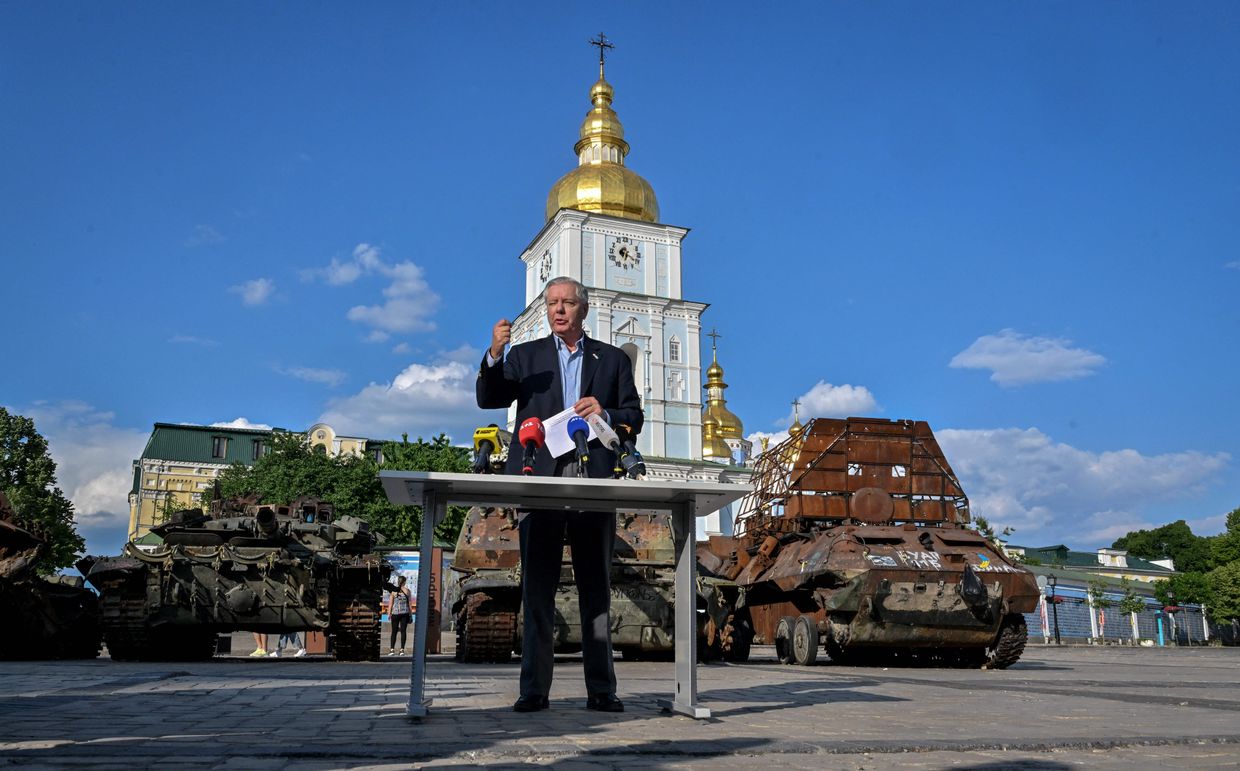
There are other Republicans in support of further assistance to Ukraine, including Senator Marco Rubio, who reportedly was considered as Trump’s running mate. Richard Grenell, the former acting director of national intelligence, is another, according to Adrian Karatnycky, a senior fellow at the U.S.-based Atlantic Council. Rubio and Grenell both spoke at the Republican National Convention this week.
Despite the media swarm around Trump’s VP pick and his recent meeting with Moscow-friendly Hungarian Prime Minister Viktor Orban, these individuals and their sway shouldn’t be overlooked, Karatnycky said.
Then there are Ukrainian Protestants who have been crucial in mediation efforts due to their links with the powerful Evangelical lobby in the U.S. that has influence in the Republican Party.
They traveled to the U.S. this year to meet with American Evangelicals, which reportedly helped sway U.S. Speaker of the House Mike Johnson, a Republican and Southern Baptist, to get Trump’s blessing to pass $60 billion in critical aid for Ukraine that Trump’s camp was blocking for more than half a year.
It is publicly unknown what efforts the Zelensky administration has made to reach out to Trump directly. The two have tricky relations following their notorious 2019 phone call during the candidate’s first presidential tenure that ultimately led to Trump’s first impeachment.
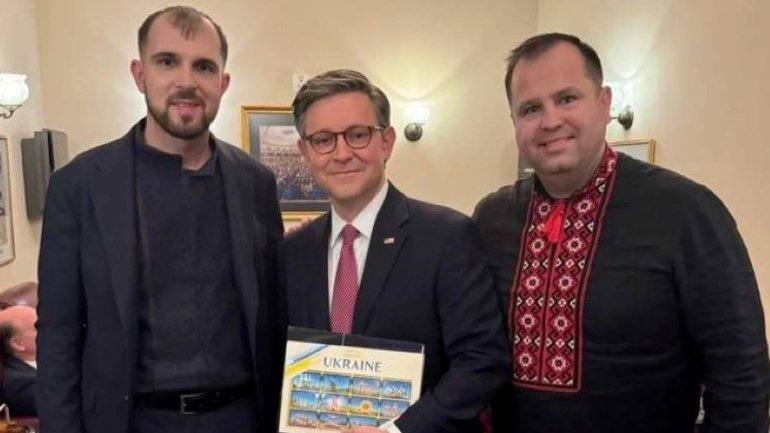
“Because of the ‘perfect call’ between Zelensky and Trump which resulted in the impeachment proceedings against Trump, a relationship already exists between the two – albeit not a great one,” said Brian Mefford, an American political consultant working in Ukraine for 25 years.
“In the first year of the invasion, the Zelensky administration was trying to save the country and focused primarily on relations with the Biden White House. But as we saw this spring with the successful vote on Ukraine aid, the Zelensky administration is now making a greater effort of outreach to Republicans, and Speaker Johnson is now decidedly pro-Ukraine,” Mefford added.
Stressing that “it is a necessity for any country to have strong relationships with both U.S. parties and not tie the nation’s fate to one party or president,” Mefford said “this bi-partisan outreach needs to continue throughout the war and during the reconstruction to ensure Ukraine’s future.”
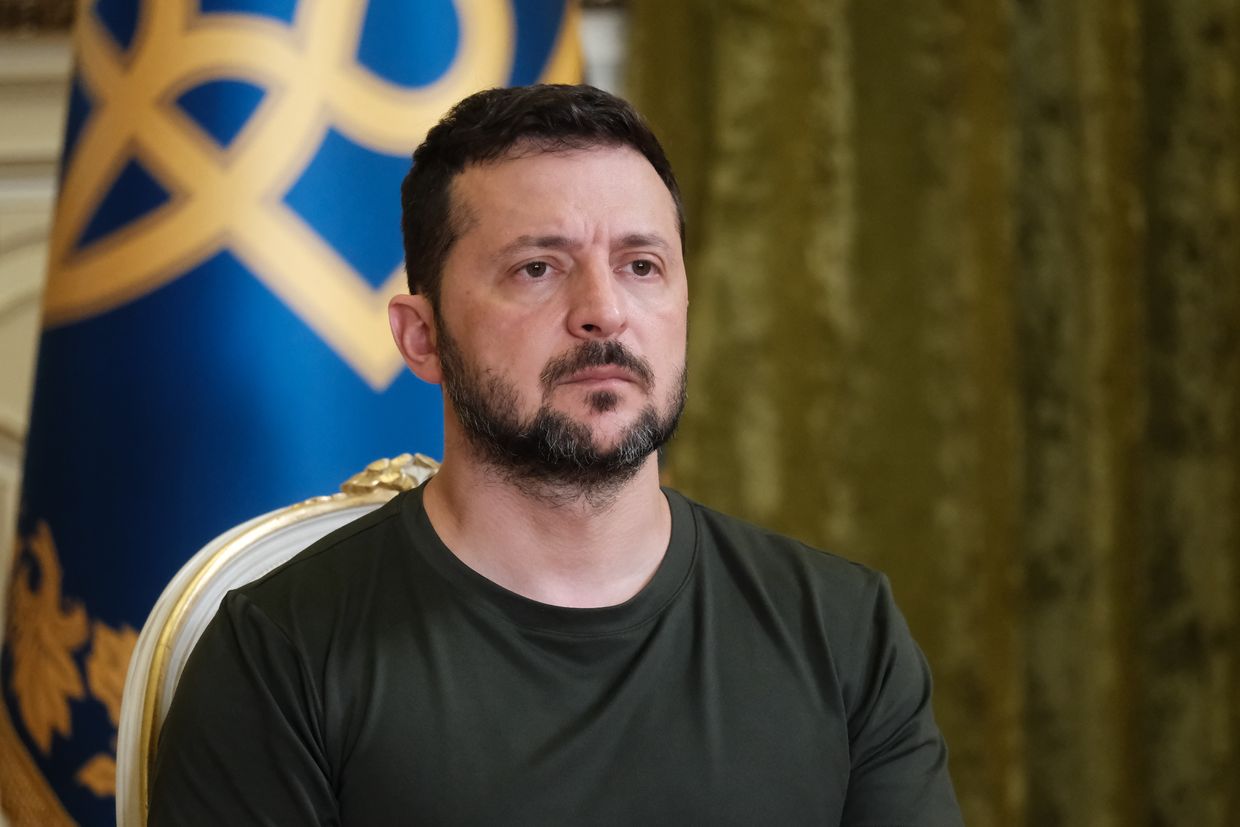
Continuing, Mefford said "the Herculean efforts this spring to persuade Evangelical Christians that Ukraine’s struggle is their struggle were successful and resulted in more military aid.”
“These relationships need to be cultivated and maintained because Evangelicals remain the key activists in the Republican party. However, these relationships cannot be transactional. They must be genuine and focused on church leaders, not only on Republican officials,” Mefford added.
Asked about Ukraine’s outreach towards Trump, Tymofiy Mylovanov, a Ukrainian economist and an advisor to Zelensky's administration, said "serious work is under way in this direction."
Getting to Trump
Ukrainian political analyst Volodymyr Fesenko, a regular on Ukraine’s wartime state-controlled television news programs, said that "most likely the Ukrainian authorities are trying to get in touch with Trump's entourage."
"Given the high likelihood that Trump will win, Ukraine is trying to get access to Trump's team," he told the Kyiv Independent. "(Zelensky’s chief of staff Andriy) Yermak, who is in charge of contacts with the U.S., has given an instruction to seek contacts with Trump's team."
Fesenko added, however, that direct contacts – such as a meeting between Zelensky and Trump or a phone call – are likely only after the presidential election. (Update: Shortly after this story was published, CNN reported that Zelensky and Trump were going to have a phone call on July 19.)
He said that Boris Johnson's meeting with Trump was "very likely" part of Ukraine's efforts to get in touch with the ex-president's team.
Johnson, who was the U.K. prime minister from 2019 to 2022, has presented himself as one of Ukraine's most outspoken and staunch supporters. He has had friendly relations with Trump ever since both rose to power in their own countries with foreign policy agendas seen as isolationist, Brexit in the case of Johnson’s rise to power and threats to cut the U.S. role in NATO in the case of Trump.
Stepping up efforts
An American supporter of Trump based in Ukraine for a long time told the Kyiv Independent that he believes Zelensky's team should be more proactive, step up communications with Trump's team, and deploy more people and more money for that purpose.
He spoke on condition of anonymity due to the sensitive nature of the subject.
"They should expand their network of communicators and information gatherers," he said. "They should be staffing up their embassy in the U.S. right now, and they need more people and more brains on the ground."
Zelensky's team should get to know Vance, Trump’s top media ally Tucker Carlson, and other influencers and decision makers, the Trump supporter said. They should also get to know the agenda of think tanks affiliated with the Republican party, such as the Quincy Institute for Responsible Statecraft, the Cato Institute, and the Heritage Foundation, he added.
"Then the Ukrainian side will have some concept of who are the personalities behind the current Trump team," he said. "If you get this matrix and if your people are in touch with them, you will have a better understanding of whom to contact and an idea of the issues and influences on many of these personalities, who is peddling what agenda and who is a Russian agent of influence."
If Zelensky's team does not step up its efforts to reach out to Trump's people, “it could get into another partisan mess similar to the one that happened after Zelensky took office," the Trump supporter said. In that case they risk being seen by Republicans as “proxies to Biden's team” and in turn, losing years of strong bipartisan Republican-Democratic support, he added.
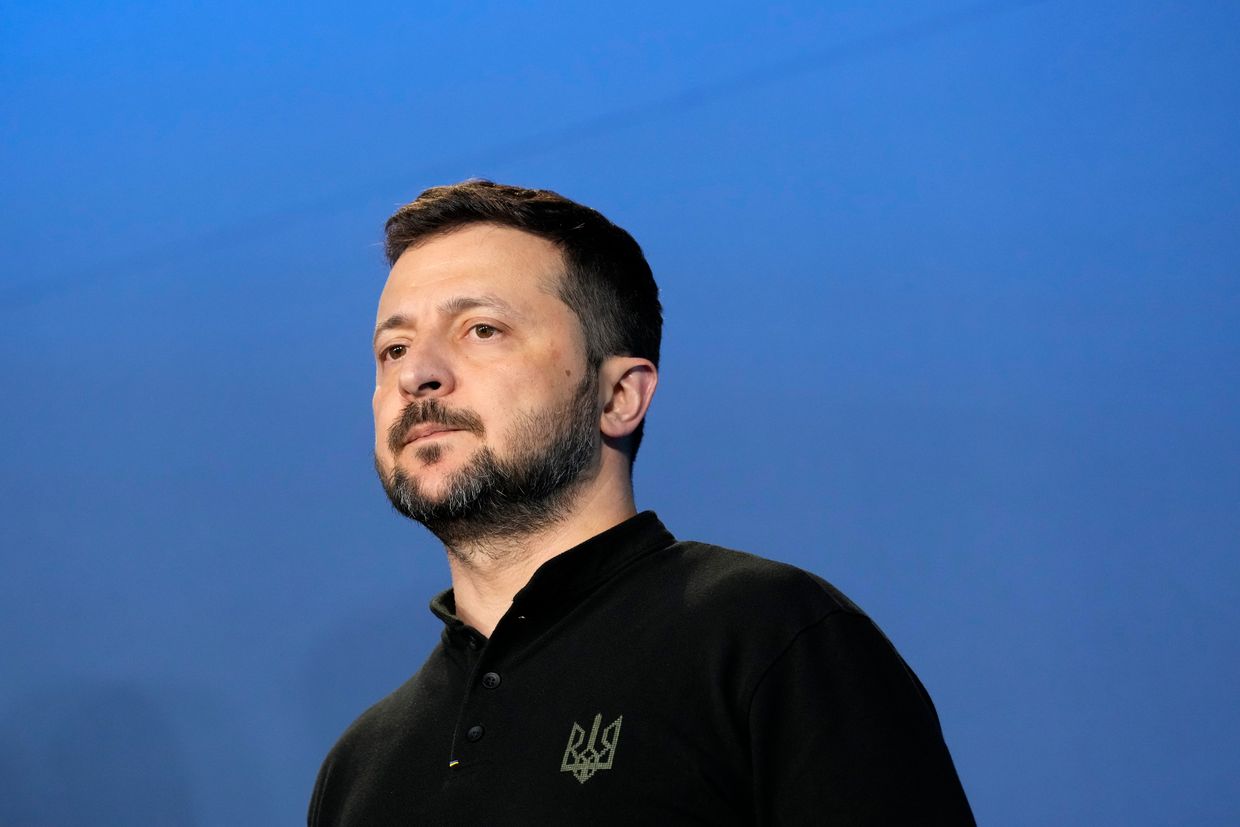
After Zelensky was elected president in 2019, relations between Ukraine and the U.S. soured as Trump blocked a $400 million military aid package for Ukraine in an attempt to obtain a quid pro quo deal.
Trump wanted the Ukrainian authorities to investigate his rival, Joe Biden, and his son Hunter. Trump was impeached for these actions in 2020 and acquitted by the Senate.
"If they don't become proactive, they also run the risk of not having accurate information on what's going to happen," the Trump supporter said. "And if Ukraine doesn't understand in the next few weeks what are the truly important driving issues of (Trump's) campaign, it may get communication wrong."
Kyiv needs flexibility
Fesenko said that the Zelensky administration should be flexible in its contacts with Trump's team.
"Trump supports peace talks, and Ukraine should not reject this idea outright," he told the Kyiv Independent. "A refusal would be a primitive and stupid position... We need to survive. If we lose U.S. support, we'll lose the war."
Trump said in 2023 that, if elected president again, he would ask Zelensky and Russian dictator Vladimir Putin to make a peace deal.
Trump also said he would warn Putin that the U.S. would increase military support for Ukraine if an agreement is not reached. Meanwhile, two Trump advisors have proposed a plan that would cease military aid to Ukraine unless it agrees to hold peace negotiations with Russia, Reuters reported on June 25.
Fesenko said that Ukraine should agree to talks but insist Ukraine's interests should be paramount.
He said that Trump's team is likely to initiate a ceasefire deal according to the "Korean scenario" – without Ukraine recognizing any occupied territories as Russian.
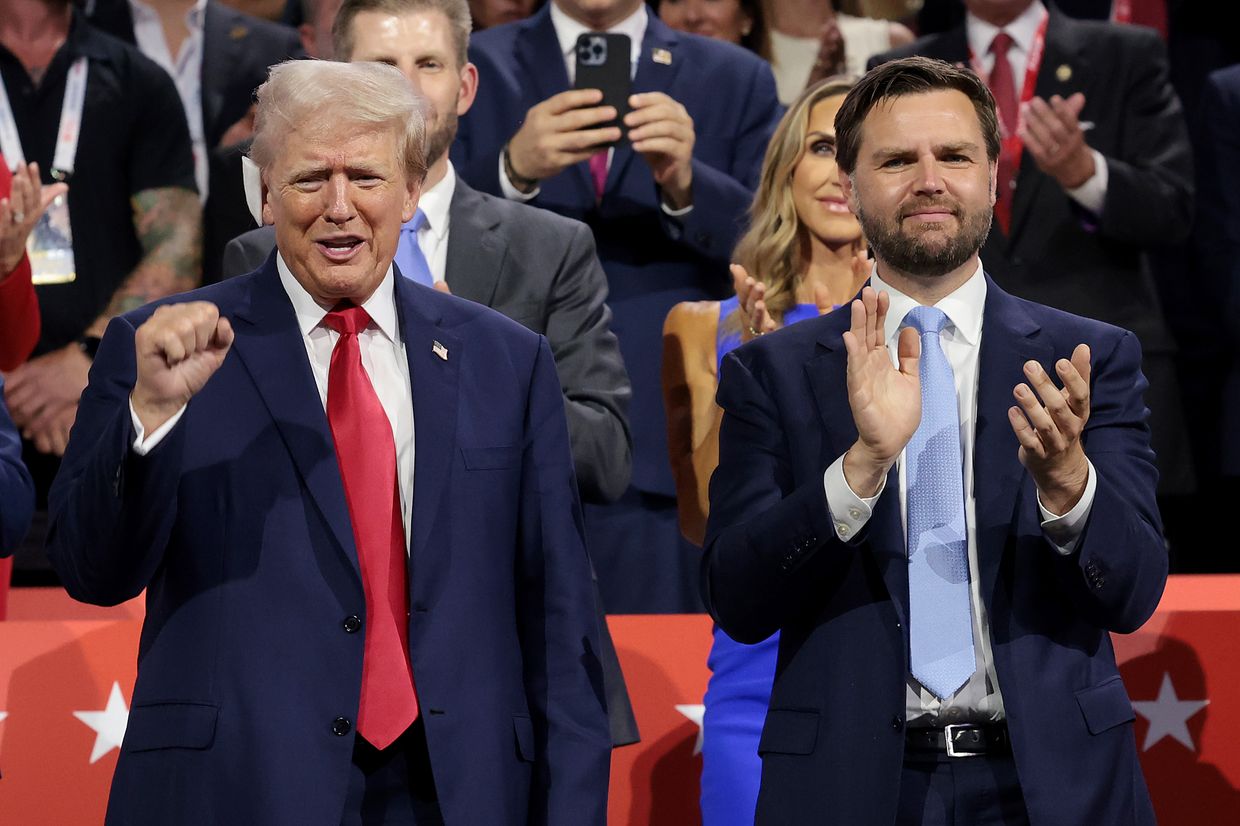
Trump's team may also support the Russian demand to make Ukraine abandon plans to join NATO, and Vance supports this demand, Fesenko added.
To continue getting U.S. aid, Ukraine may agree to that deal but it's not clear if Putin will agree, Fesenko said.
"If Trump makes big concessions to Putin, he will be accused of betraying American interests," Fesenko said, adding that he needs to extract concessions from Putin as well. "If Putin does not agree, Trump may increase military aid to Ukraine and even lift restrictions on the use of U.S. weapons against Russian territory."
Fesenko drew parallels with Trump's first term, when he wanted to reach a deal with Putin but eventually Russian-U.S. relations worsened.
"Putin didn't want to make concessions, and Trump didn't like that," he said.
As a result, Trump stepped up aid to Ukraine by sending the first batch of Javelin anti-tank missiles, Fesenko added. At that time – before the full-scale invasion but years into Russia’s war in Donbas – it was the most sophisticated U.S. weaponry provided to Ukraine thus far, and kit that Kyiv had long pleaded for.
This month Zelensky said for the first time that he was open for Russia to attend the next international peace summit backing his plan to end the war, but Russian officials have ruled out Moscow’s attendance.
Ukraine organized the first peace summit in Switzerland in June, with 93 countries and eight international organizations attending.
Business-like and moral approaches to Trump
Both Fesenko and the Trump supporter based in Ukraine said that Zelensky's team should take into account the fact that Trump is a businessman and take a business-like approach in talks.
The Trump supporter said that Ukraine could offer "value propositions" that could be linked to joint green energy projects, more U.S. liquified natural gas supplies to Ukraine, and offering American companies seeking to diversify away from China a chance to tap Ukraine’s big reserves of critical raw materials like lithium.
Fesenko said that U.S. businesses could be interested in helping to restore Ukraine’s energy sector heavily bombed out by Russian air strikes and to build new nuclear power stations, including the future small modular nuclear reactor technologies being developed.
"(Trump would want to know) in what way U.S. aid for Ukraine would be profitable for the U.S.," Fesenko said.
Mylovanov, the advisor in Zelensky’s administration, said that creating a good investment climate for U.S. businesses could help.
"This always works – under Biden or under Trump," he said. “If we create conditions (for American businesses), this is always a plus."
Former U.S. Ambassador to Ukraine John Herbst said that “despite all of the peculiarities of the Trump-Zelensky relationship, Trump acknowledges that Zelensky is a great salesman.”
“Now, that could have been seen as a pejorative, but we know that Trump likes successful people, and by any stretch, Zelensky was obviously successful as an entertainer and businessman, and successful thus far as president,” Herbst added.
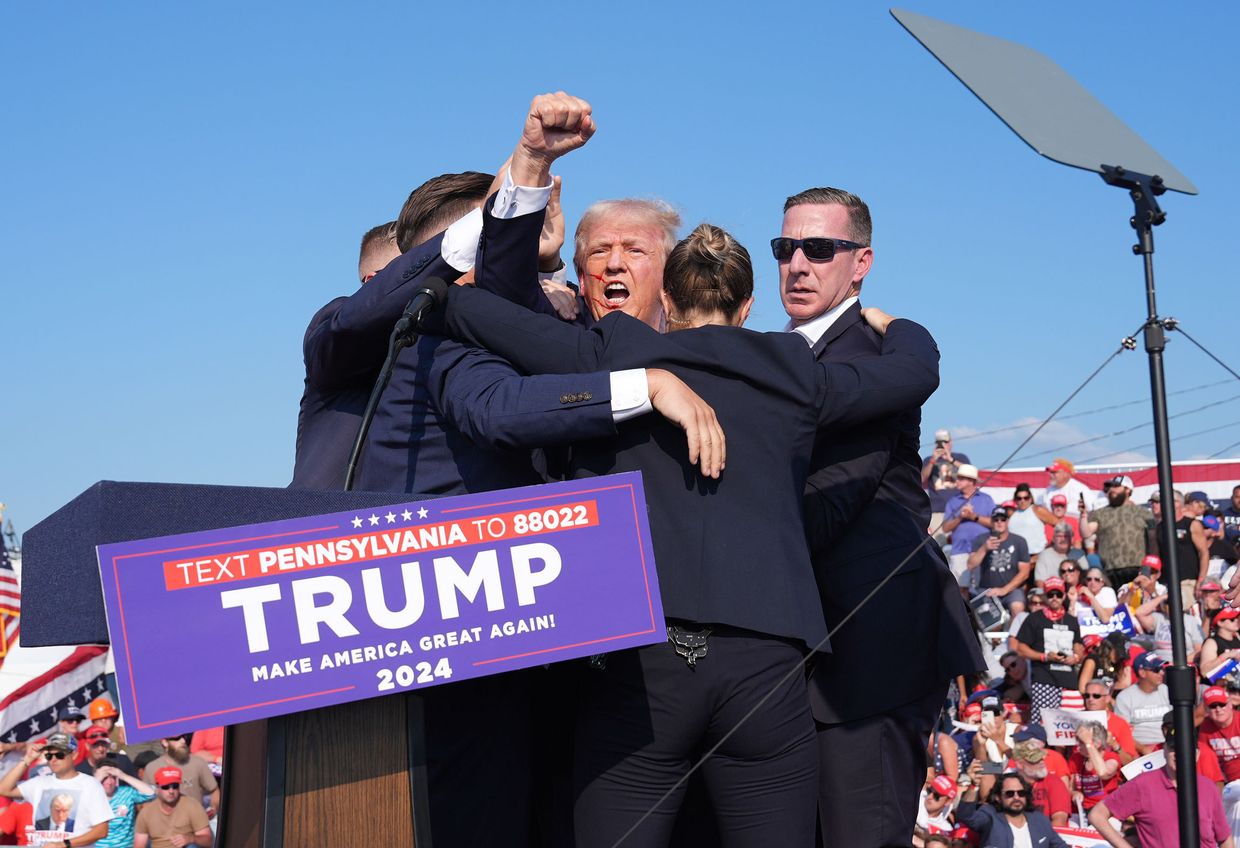
Apart from pragmatic business concerns, moral arguments could also work with some of Trump’s Evangelical base.
"If they care deeply on a human level, Ukraine should convey pain and show emotion," the Trump supporter based in Ukraine said. "Trump may be empathetic after surviving an assassination attempt."
He suggested that Ukraine could invite the wives of Trump and Vance and "highlight the genocidal war against Ukraine" to them.
Mylovanov said that Zelensky's team "should show the truth about Russia."
"They should show that (Russians) are killing Protestants in Ukraine," he said. "The U.S. was built on the freedom of religion."
Russia and its proxies have killed, arrested and tortured scores of Protestants in the occupied territories of Ukraine and shut down their churches both during the Donbas war starting in 2014 and since the full-scale invasion unleashed in 2022.
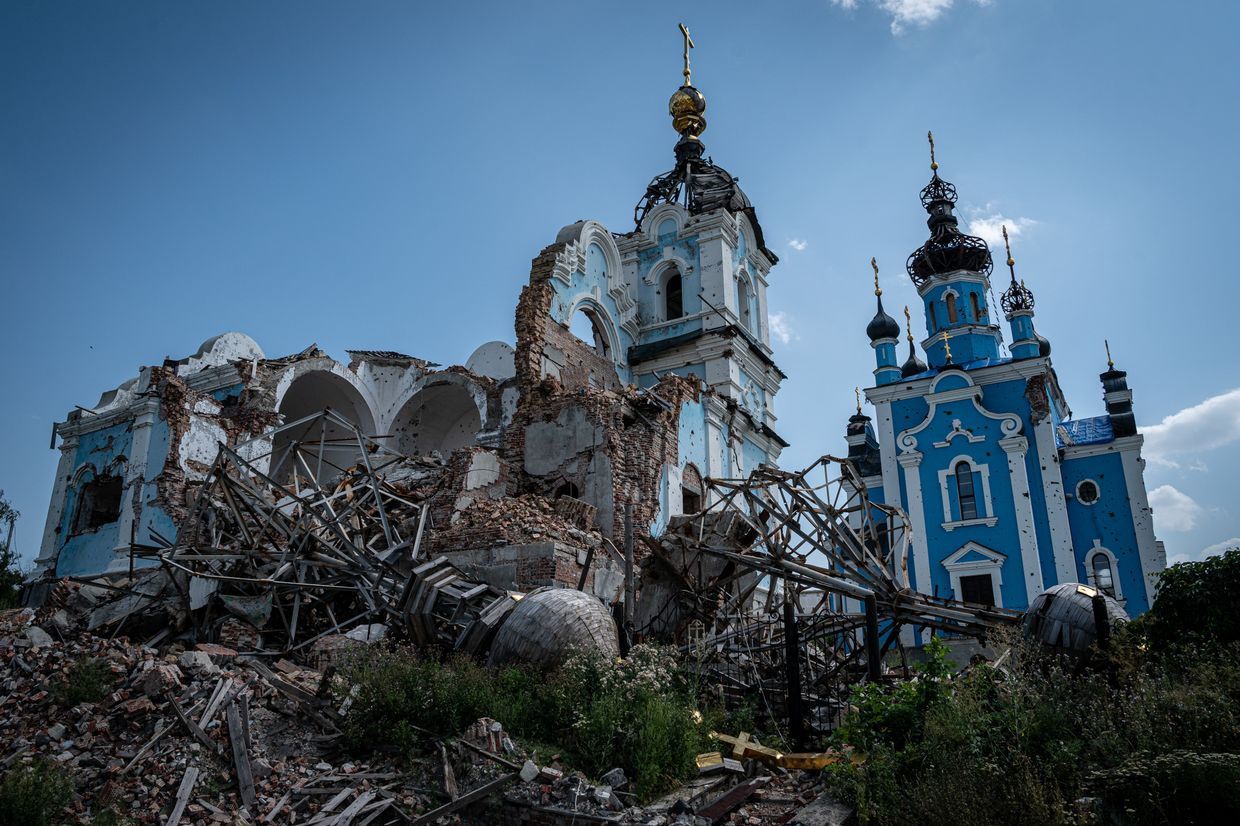
Vance’s role
Ukraine's chances of persuading Trump to back Kyiv appeared to have been dealt a blow when Vance accepted Trump’s nomination to be his vice presidential candidate on July 17.
Vance has made a number of controversial statements on Ukraine.
In February he said that "any peace settlement is going to require some significant territorial concessions from Ukraine, and you're gonna have a peace deal because that's the only way out of the conflict."
He has also made a number of statements suggesting that he is in favor of halting the U.S. support of Ukraine.
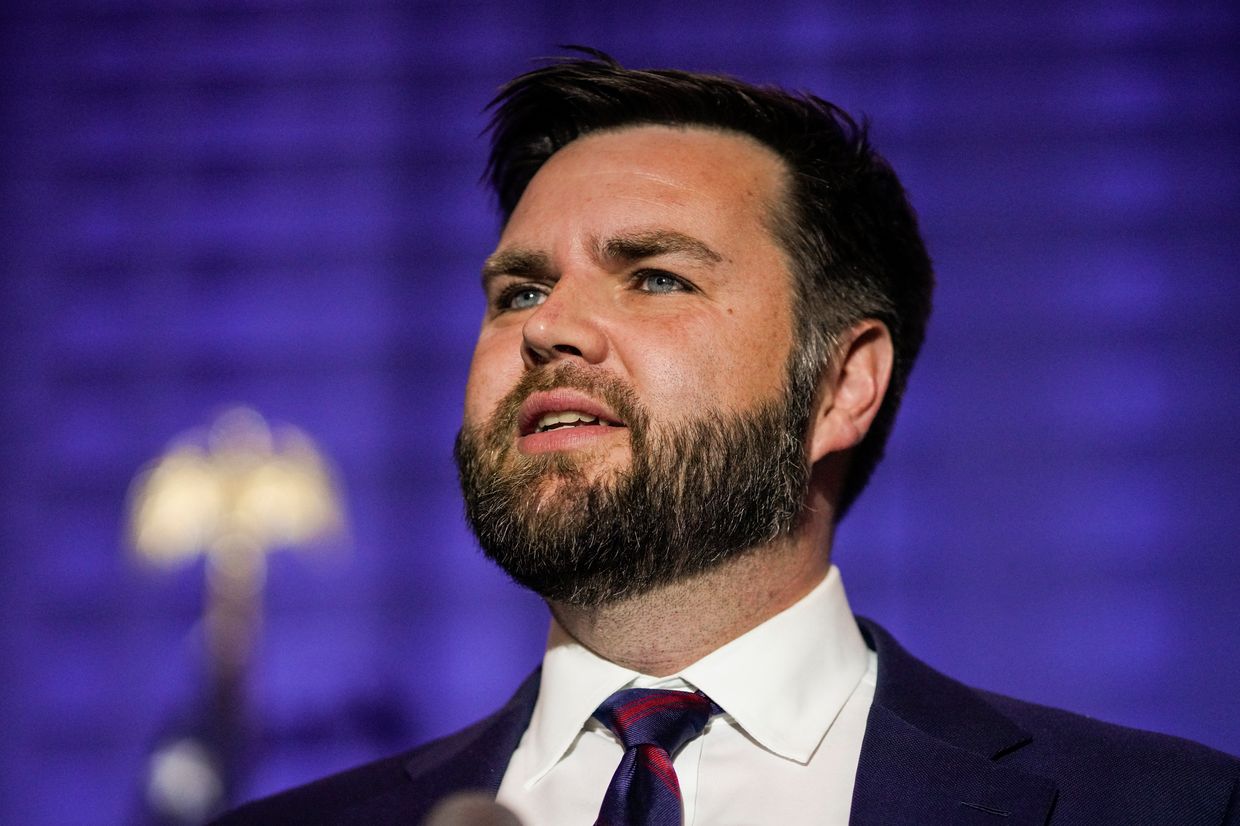
Fesenko said that "Vance's nomination is definitely bad news for us due to his anti-Ukrainian position."
However, his role should not be overestimated because vice presidents do not have a lot of power in the U.S., with some exceptions, he added.
"Unless Trump instructs Vance to deal with the Ukrainian issue, his influence on politics will be limited," Fesenko said. "It's more important who will be appointed as secretary of state, national security advisor and defense secretary under Trump. It would be important for Ukraine if he gave jobs to the Reaganite wing of the Republican party."
Fesenko also said that Vance has already changed his position on Trump, which shows that he can alter his views. He could change his stance on Ukraine if Zelensky's team is persuasive, he added.
At first critical of Trump, Vance became a staunch supporter of the former president when seeking to win the race for the Senate.
The Trump supporter based in Ukraine also said that Zelensky's team should try to persuade Vance to take a more pro-Ukrainian stance.
“Vance is not aware enough of the genocidal nature of the war against Ukraine” because he does not have national security or defense expertise, he added.
Mylovanov said that Vance's influence should not be exaggerated and that his views may change.
"Currently, his stance is anti-Ukrainian, but he may completely turn around," he said. "When you're in office, your rhetoric and behavior can change.”












